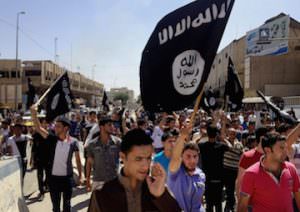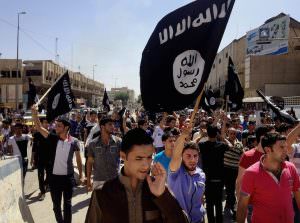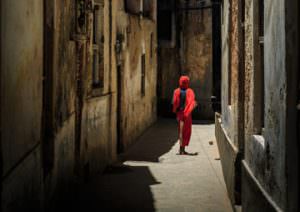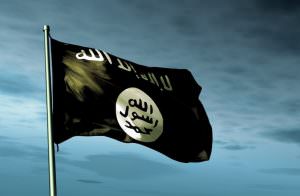Islam’s Walls of Language
Mitt Romney's bumbling in Israel nonetheless introduced a subject few other American politicians know anything about, nor do, it seems, the staffs of the NSA, CIA and other American political and military planners.The cultural comparisons by which Mitt Romney distinguished himself when recently in Israel, flattering as they were to his Israeli audience and insulting to Palestinians, resulted mostly in global comment on Mr. Romney’s own cultural and intellectual limitations. They nonetheless introduced a subject few other American politicians know anything about, nor do, it seems, the staffs of the NSA, CIA and other American political and military planners.
One cultural problem is Muslim theocracy, a fundamental element in Islam. The Quran’s authority over all of society has been a barrier to political and social progress. Even after Islam had become a great empire in the days of the Umayyad, Abbasid and Ottoman caliphates, it still functioned in the fashion of the monarchies of antiquity, which is to say that government was effectively the household of the caliph, subject to the norms of the Quran.
Christianity was different. It had separation of church and state, following the New Testament injunction that the things of Caesar belonged to Caesar, and the things of God to God, which was to say that the civil power had its place and rights in civilization, as did religion.
This was demonstrated in the year 800 A.D. when the pope crowned the Frankish king, Charlemagne, ruler of the Holy Roman Empire. In the centuries that followed, there were often struggles between church and state, but each respected the legitimacy of the other. This distinction between state power and religion was never achieved in Islam. The caliph was the political as well as the religious ruler. In the modern Islamic nations, attempts to establish legitimate secular rule has always been blocked by the claims of religion, as is the case even today when the Muslim Brotherhood, al Qaida and other ultra-orthodox Islamic movements struggle to impose Shariah law and banish secular rulers and political parties.
The other great Muslim obstacle to modern government has been language. Eighth century classical Arabic is the language of the Quran and the foundation of education in the Muslim world. There is no universal modern vernacular form of Arabic that can be used in education throughout Arabic civilization. People in every country speak popular dialects of Arabic, which more often than not are unintelligible to fellow Muslims in other countries.
Abderrahim Youssi, professor of English and of Maghrebian linguistics at the University of Mohamed V in Rabat, Morocco, has recently published an illuminating statement of the problem in the Paris daily, Le Monde.
In the seventh century, following the life and prophecies of Muhammad (570-632), his teachings were consolidated in the Quran in the Arabic of the time, now considered the sacred version of the language. Arabic then and since has been used by hundreds of millions of people in various forms and dialects, but the language of the Quran — accessible to few other than scholars — has remained untouched as the language of religion and the foundation of education. Religious education is based upon learning by rote and praying in classical Arabic, which people do not themselves generally use.
A comparison might be made with the Catholic Mass, universally celebrated in Latin from the earliest times until the second Vatican Council in the 1960s. However, the language itself was not sacred, merely a practical, and eventually easily abandoned, expedient in worldwide worship and bureaucratic communication, while vernacular language translations of the liturgy were all but universally used at Mass by lay Catholics.
In the case of Arabic, Youssi writes, it accompanied the spread of Islamic religion during the period of the great Arab conquests in North and sub-Saharan Africa, Spain and in Balkan Europe. “It was always considered classic, immutable, unique and elitist.” The original languages of the regions Islam conquered were deprecated, reduced to oral use and impregnated by the vocabulary of the past and colloquial usages. However, they also changed with time and simplified their syntax. They were living languages. The practical result was low literacy because of the immense gap between the language people actually used and the classical version of Arabic.
While Arab civilization expanded, Arabic itself remained confined to elites, scholars and religious use. Among scholars, it could to an extent serve as a scientific and literary lingua franca, but was of little use in dealing with the evolution of Western civilization, and was a barrier to scientific and cultural development. It did not become a printed language until Napoleon’s invasion of Egypt, which established contact and interaction between Western Europe and Islamic intellectual life.
A century later, imperialism, nationalism and anti-colonialism imposed a search by the Arab people for Arab unity, a search only being fulfilled now. But Arabic civilization remains isolated, behind walls of language.
Visit William Pfaff’s website for more on his latest book, “The Irony of Manifest Destiny: The Tragedy of America’s Foreign Policy” (Walker & Co., $25), at www.williampfaff.com.
© 2012 Tribune Media Services, Inc.
Your support matters…Independent journalism is under threat and overshadowed by heavily funded mainstream media.
You can help level the playing field. Become a member.
Your tax-deductible contribution keeps us digging beneath the headlines to give you thought-provoking, investigative reporting and analysis that unearths what's really happening- without compromise.
Give today to support our courageous, independent journalists.






You need to be a supporter to comment.
There are currently no responses to this article.
Be the first to respond.